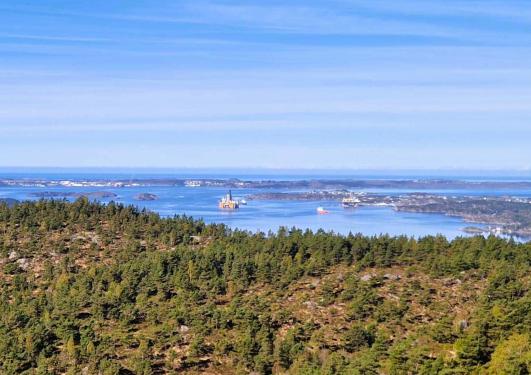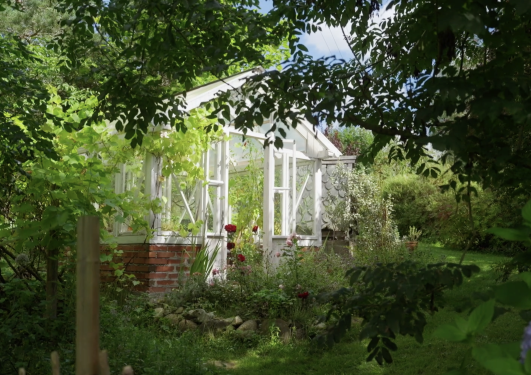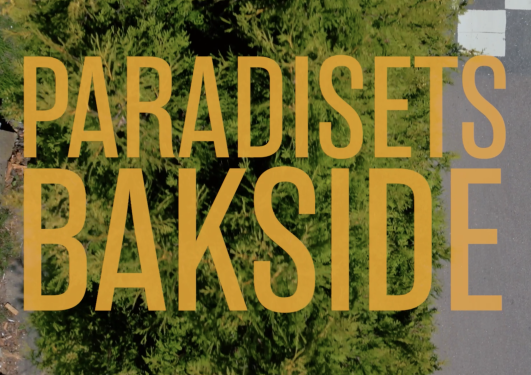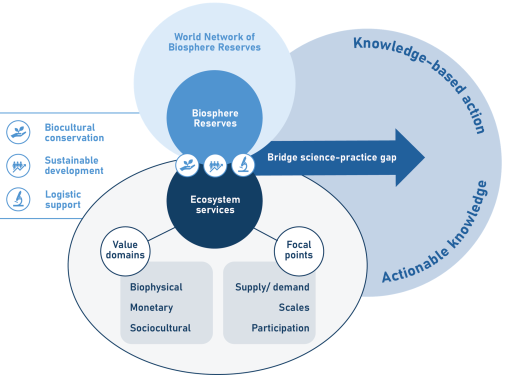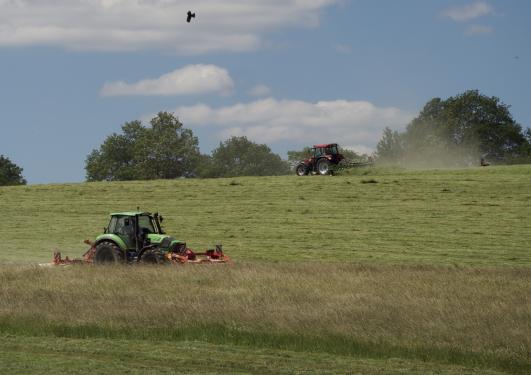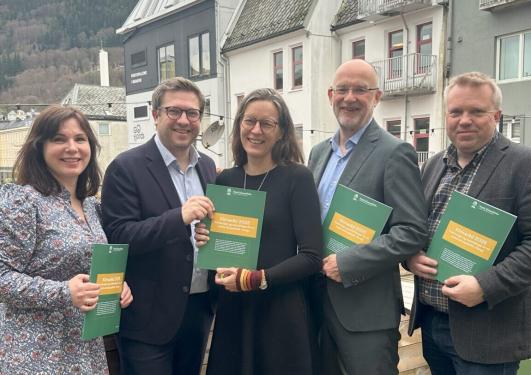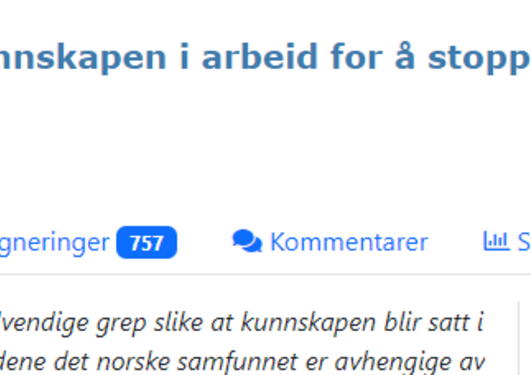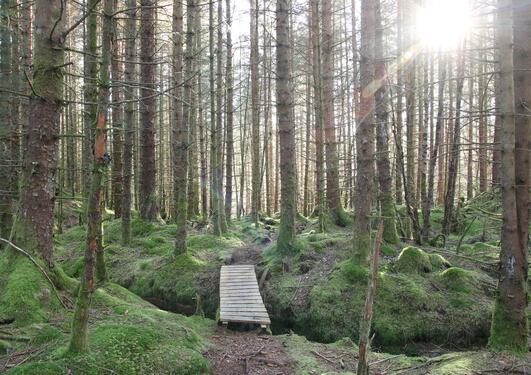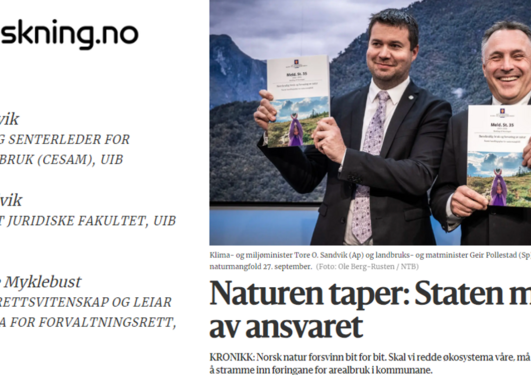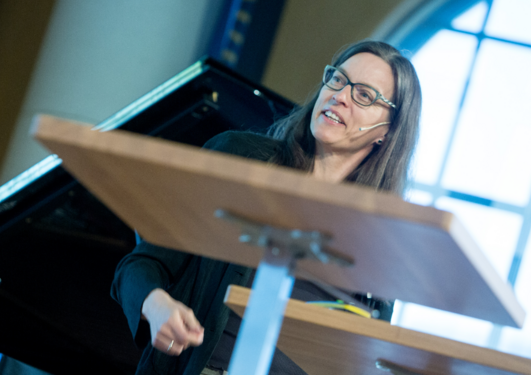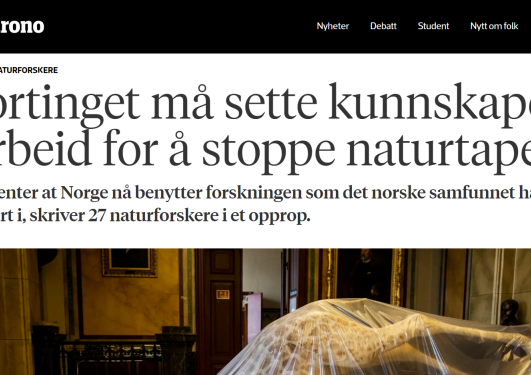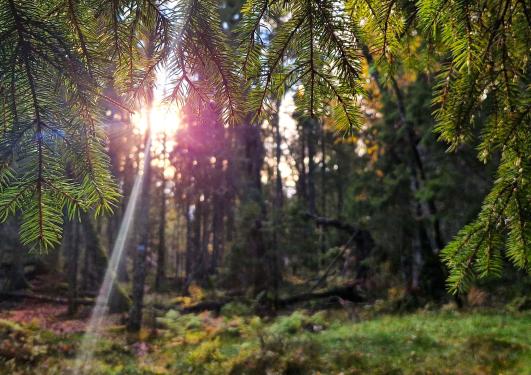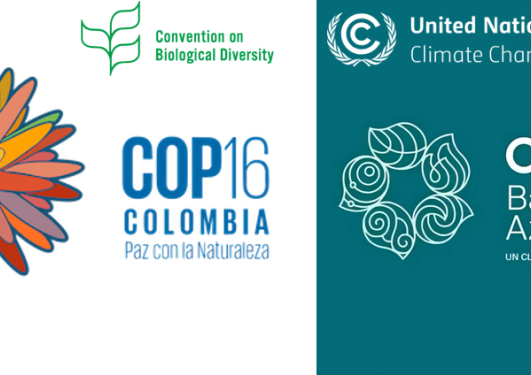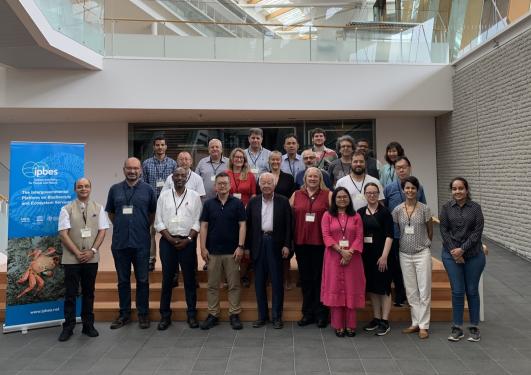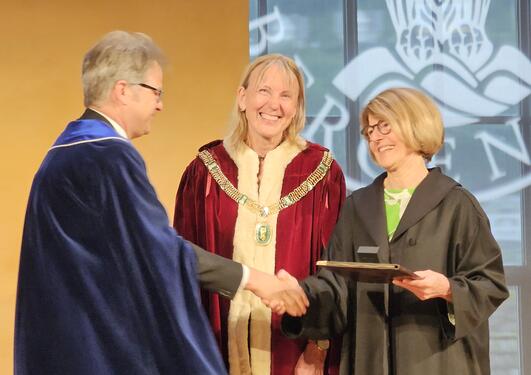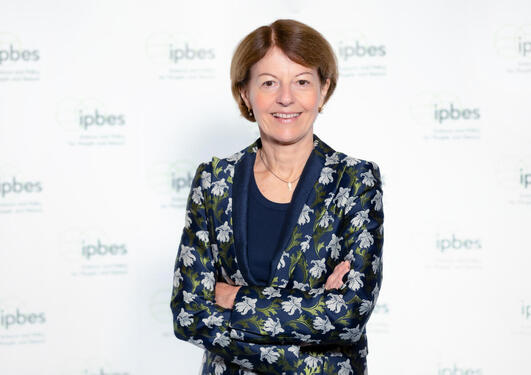News archive for Centre for Sustainable Area Management (CeSAM)
Judging by the political debate in Norway, it may seem as if the nature crisis is over. But is that really the case?
In late June 2025, Janne Thomsen, PhD Candidate with the ACTIONABLE project, participated in the ISEE Summer School on Justice within Planetary Boundaries and presented her ongoing research at the ISEE Degrowth Conference in Oslo, which focused on Building socially just postgrowth futures - linking theory and action.
Norwegian gardens have gone from being full of fruits and berries to becoming flat lawns with trampolines and gas grills. “We have gardens that demand more, but give less back to nature,” says Professor Kyrre Kverndokk.
How is your garden related to the Anthropocene? This rather large question is the starting point of the documentary “Paradisets bakside”, now available with both Norwegian and English subtitles on Viten-TV.
PhD candidate Janne Thomsen and researchers Jarrod Cusens and Inger E. Måren from UiB's UNESCO Chair on Sustainable Heritage and Environmental Management recently had their review paper published in Current Opinion in Environmental Sustainability. The paper reviews recent ecosystem services approaches in the World Network of Biosphere Reserves and explores how ecosystem services research supports... Read more
Peter Manning was awarded an NFR grant as part of the transnational Agroecology Partnership program.
The Norwegian green think tank Klimastiftelsen recently presented their report with recommendations for better green policy to the minister of research and higher education Sigrun G. Aasland. The report was written by the Climate Council 2025 (Klimaråd 2025), which included Vigdis Vandvik (CeSAM) and Kikki Kleiven (Bjerknes center) from UiB.
UiB's election campaigns are in full swing. But what do the two teams think about sustainability? How do we address big global and local challenges through our research, education and outreach? What are UiB's strengths and what can be improved?
In this debate, organized by CET, the Sustainability Pilots, and CeSAM, we ask Margareth Hagen, Sigrunn Eliassen, Lise Øvreås and Endre Tvinnereim... Read more
We have received over 750 signatures to our appeal «Stortinget må sette kunnskapen i arbeid for å stoppe naturtapet» (Norwegian government must use knowledge-based solutions to stop the loss of nature), and many supportive messages in the commentary section.
CeSAM researchers Inger Måren and Katja Malmborg present the process of, and preliminary results from, their resilience asessment at The Norwegian Association of Local and Regional Authorities' Sustainability Friday on December 13.
In this newly published op-ed, we argue that the Norwegian state must take more responsibility for protecting natural ecosystems by tightening regulations on land use in municipalities.
These days, Norway's plan following the Kunming-Montreal Global Biodiversity Framework (the Norwegian Action Plan for Natural Diversity) is being discussed in the Norwegian Parliament. Our expectation of this plan was that it would not only describe the status of Norwegian nature, but also take this knowledge seriously by proposing necessary measures to slow down and reverse the loss of nature... Read more
25 prominent scientists call for knowledge-based action in this debate article, recently published in Khrono.
In CeSAM's interdisciplinary seminar series 2024-2025, we tackle big and small questions at the intersection between nature and politics. We take the Norwegian perspective as our starting point and put an interdisciplinary spotlight on Norway's implementation of the nature agreement. All welcome!
Researchers have sent a letter to the Parties and Presidents of the Conference of the Parties to the Convention on Biological Diversity (CBD; COP 16) and the United Nations Framework Convention on Climate Change (UNFCCC, COP29) asking them to initiate a much-needed coordination of the work towards the two conventions.
The Annual meeting of the IPBES task force on scenarios and models was held on 17-20 June 2024 in Hayama, Japan hosted by the technical support unit (TSU) located in the Institute of Global Environmental Strategies.
CeSAM researcher Dr. Ali K. Saysel, task force expert and professor at the Department of Geography, system dynamics group in UiB joined the meeting.
“When you give nature a chance, a difficult situation can quickly be reversed. However, in order to do that, decision-makers must have the knowledge they need to take the right measures”
- Anne Larigauderie
The Executive Secretary of the Intergovernmental panel on Biodiversity and Ecosystem Services (IPBES) Dr. Anne Larigauderie, will receive an Honorary Doctorate at the University of Bergen on May 24th. CeSAM are pleased and honored to have assisted UiB with the scientific program around this visit. Anne will be present in Bergen from May 22nd – 25th, and there will be several opportunities to hear... Read more
Pages
- July 2025 (3)
- June 2025 (1)
- May 2025 (2)
- April 2025 (1)
- March 2025 (1)
- December 2024 (2)
- November 2024 (3)
- October 2024 (2)
- July 2024 (1)
- May 2024 (4)
- April 2024 (1)
- February 2024 (4)
- January 2024 (2)
- December 2023 (2)
- November 2023 (4)
- October 2023 (5)
- September 2023 (2)
- June 2023 (2)
- May 2023 (1)
- April 2023 (4)
- March 2023 (2)
- February 2023 (4)
- January 2023 (7)
- December 2022 (1)
- October 2022 (1)
- August 2022 (1)
- June 2022 (1)
- February 2022 (2)
- January 2022 (3)
- June 2021 (1)
- April 2021 (1)
- March 2021 (1)
- December 2020 (2)
- July 2020 (1)
- March 2020 (3)
